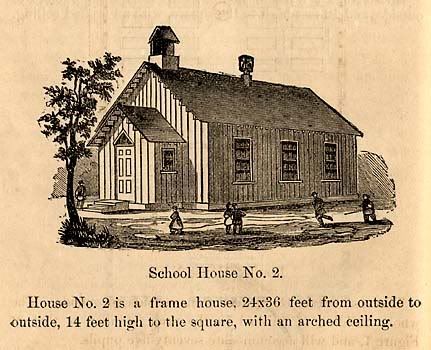APFO, Moratorium, Impact Fee
 Get ready to hear these terms more often if realtors' and homebuilders' efforts to defeat a transfer tax option are successful. The most immediate impact of success in their statewide campaign to sideline your vote on a local transfer tax option will be pressure to increase county property tax and sales tax. Whatever number of North Carolinians oppose a transfer tax, a large majority is bound to oppose increases in property or sales tax. This will leave homebuilders in the cross hairs for funding of schools and infrastructure associated with growth.
Get ready to hear these terms more often if realtors' and homebuilders' efforts to defeat a transfer tax option are successful. The most immediate impact of success in their statewide campaign to sideline your vote on a local transfer tax option will be pressure to increase county property tax and sales tax. Whatever number of North Carolinians oppose a transfer tax, a large majority is bound to oppose increases in property or sales tax. This will leave homebuilders in the cross hairs for funding of schools and infrastructure associated with growth.
An APFO is an Adequate Public Facilities Ordinance, a growth management mechanism that can be locally enacted.
It is designed to prevent a community’s growth from outpacing the local government’s ability to provide necessary public facilities to serve that growth. It also can be used to channel growth into geographic areas (and school attendance zones) that are more capable of handling new development.Developers can make contributions to "speed up the adequacy". An APFO doesn't stop growth and doesn't slow it if developers are willing to step up to the plate for schools, water, sewer, jails, parks, fire stations and other public facilities.
The primary APF criterion requires developers seeking project approval to show that currently available public facilities have adequate capacity to accommodate the project—or will have such capacity when the project is ready for occupancy.
A Moratorium is self explanatory. It stops a development activity in its tracks, until a community can get a handle on it. When a Moratorium is lifted a frenetic period of chaos can ensue as pent-up demand lets loose. APFOs help temper the frenzy. A Moratorium is a blunt instrument. Temporarily effective, but blunt and inefficient in the long run.
Impact Fees are a more direct way of tying new growth to community impacts:
Impact fees are payments required by local governments of new development for the purpose of providing new or expanded public capital facilities required to serve that development. The fees typically require cash payments in advance of the completion of development, are based on a methodology and calculation derived from the cost of the facility and the nature and size of the development, and are used to finance improvements offsite of, but to the benefit of the development.The North Carolina public has shown more support for Impact Fees than Transfer Tax. As with transfer tax, the State Legislature must authorize the use of impact fees by local governments. Impact fees on an individual home would be substantially higher than any transfer tax amount but the benefits to developers can be more clearly demonstrated and linked, including job growth.
While impact fees often do not reflect the full price of infrastructure improvements, fees do make the economic linkage between those paying for and those receiving benefits more direct, and so promote economic efficiency. The obvious direct economic benefits include the actual infrastructure investment, such as new roads, new schools, and new water and sewer extensions. Indirect benefits include improved predictability in the marketplace, knowing when and where infrastructure investment will occur, and that all developers are treated equitably.











No comments:
Post a Comment